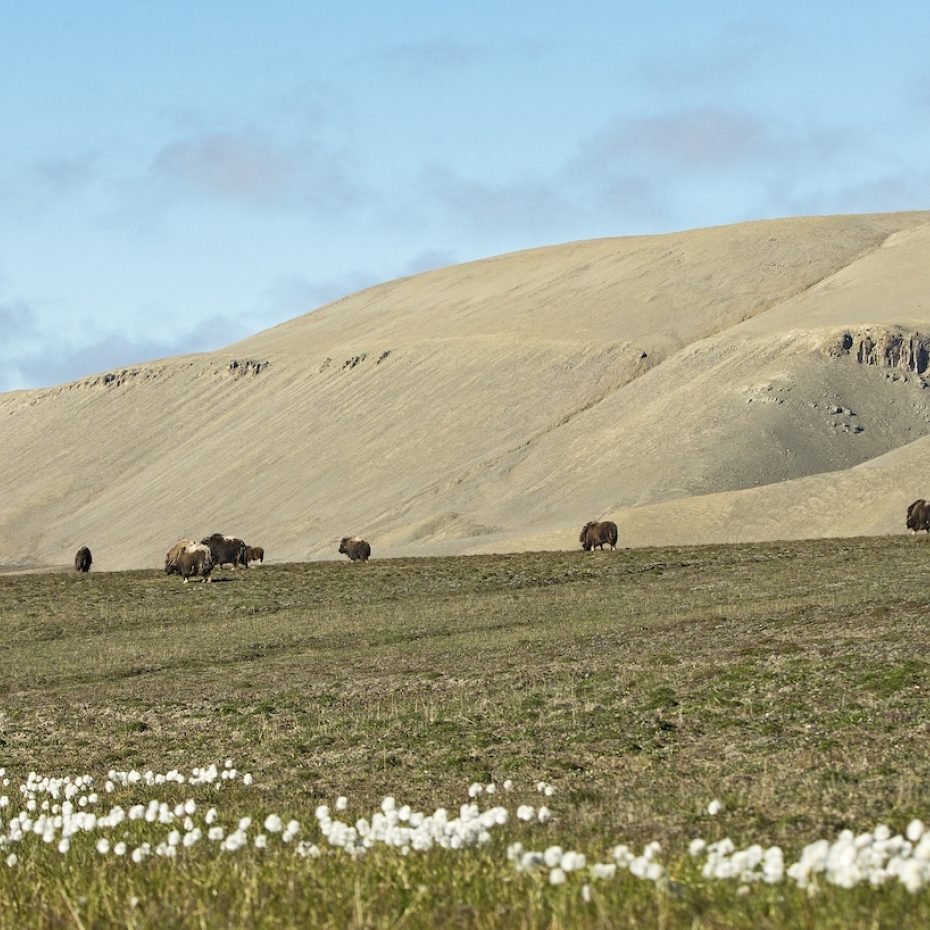
May 01, 2023 | Arctic Watch
2023 - MUSKOX RESEARCH RETURNS TO ARCTIC WATCH
The Arctic Watch Beluga Foundation continues to support vital Arctic research.
We are thrilled to share that Dr. Susan Kutz and her team will be returning to Arctic Watch for the full 2023 season to continue their essential research on the muskoxen of Somerset Island. The Arctic Watch Beluga Foundation, a federally registered charity, proudly supports their research work, which focuses on the general health of muskoxen on Somerset and baseline studies for better understanding how to combat parasites that are moving north and killing muskoxen due to climate change.
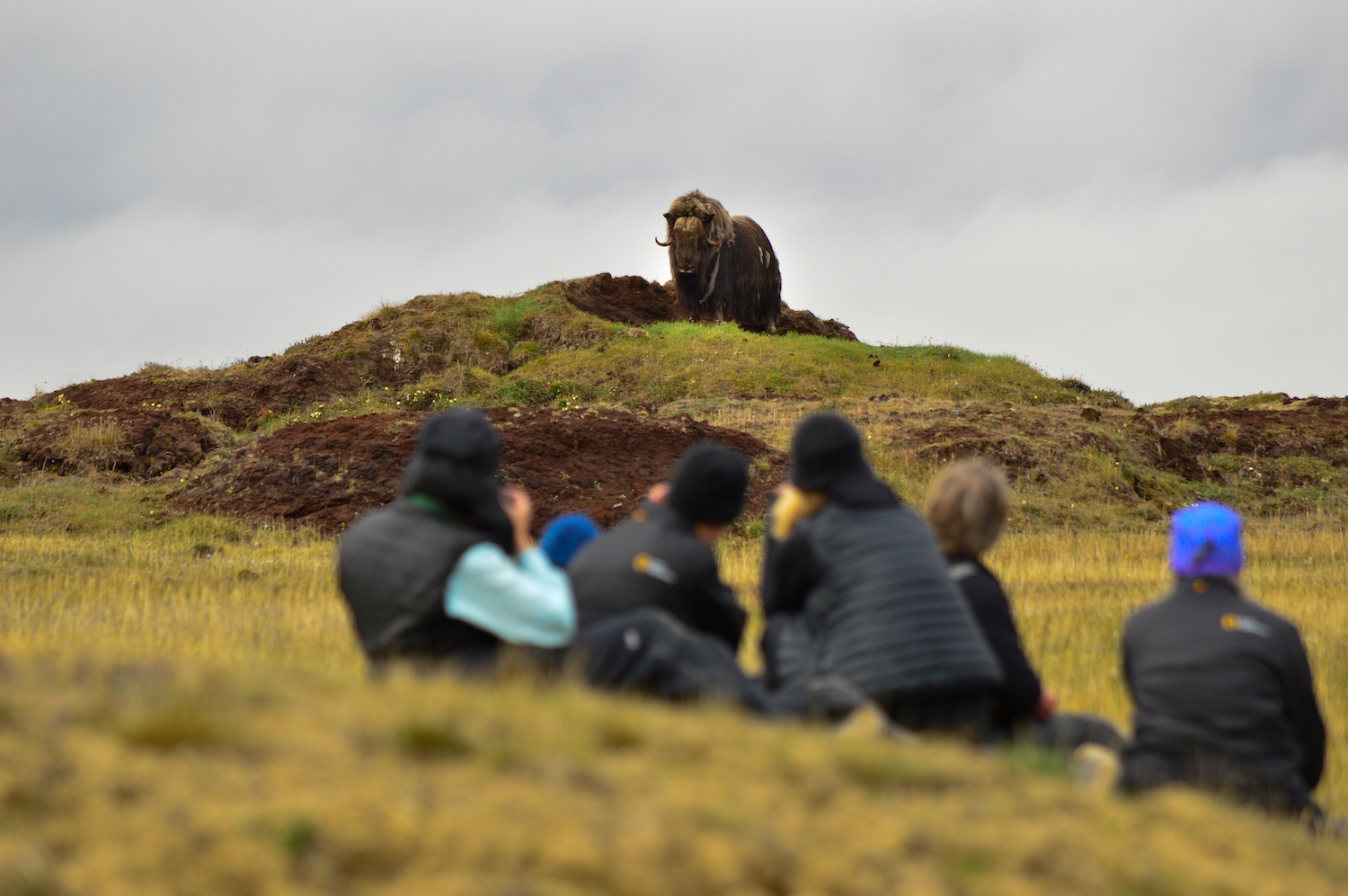
The team's key research questions for 2023 include examining the abundance and herd composition of muskoxen in the Arctic Watch study area and whether parasite intensity, fecal cortisol, and hair (qiviut) trace mineral content change between years and during the summer. They will also explore whether muskoxen use supplemented minerals, how this affects their health measures, and whether there are any negative consequences. The team will build and monitor three trace mineral supplementation sites this summer, focusing on minerals such as copper and selenium, which are critical nutrients for health and play essential roles in body functions, including reproduction and immunity for all mammals.
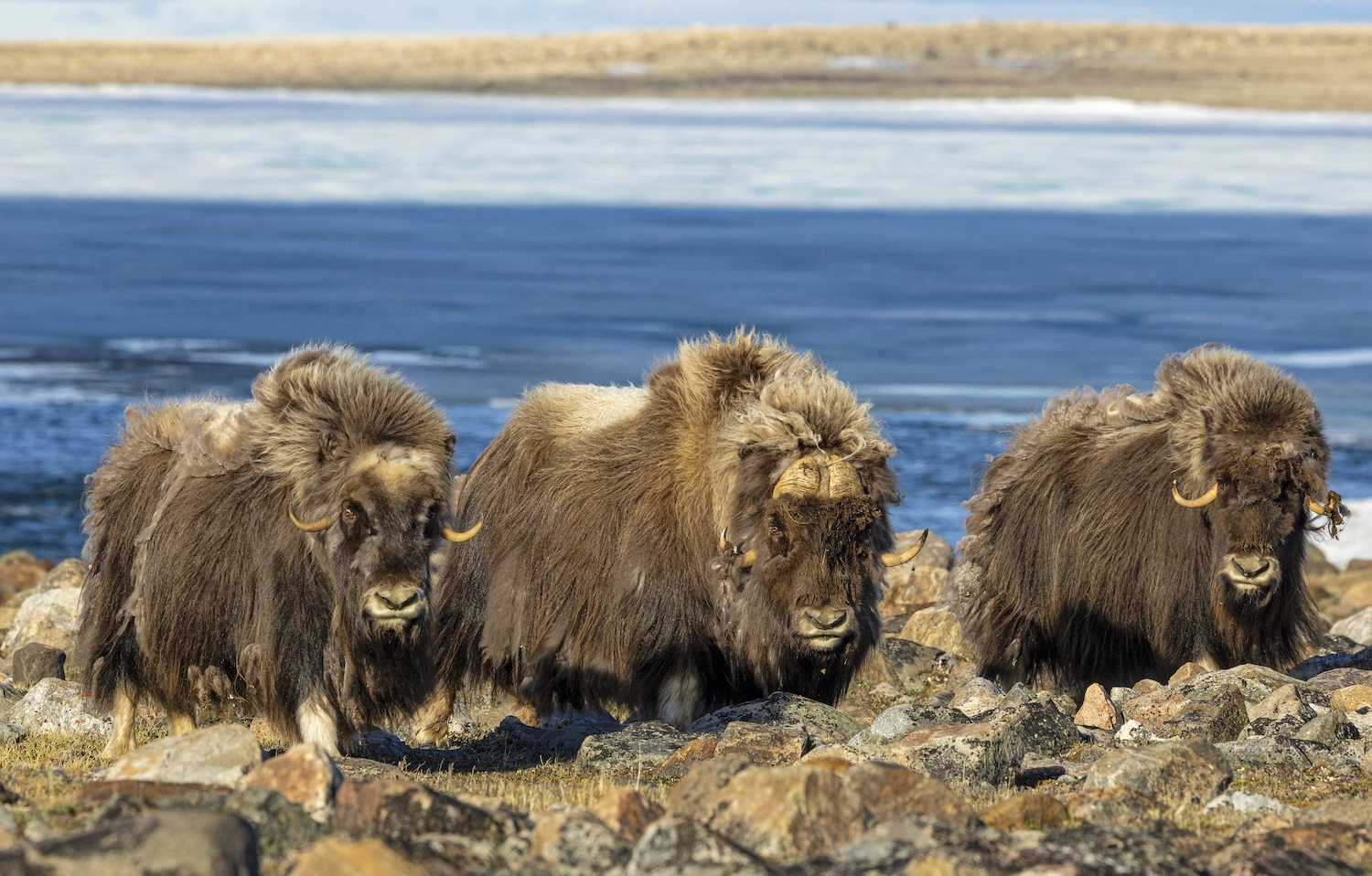
In their previous work, the team found that qiviut, the under-wool of muskoxen that was collected and analyzed for minerals in both 2021 and 2022, had very low levels of copper and selenium (needed by all mammals for baseline health and reproduction). Interestingly, there was no difference in copper or selenium levels between the two years or between the sampling areas. The team will also explore the ecology of muskox lungworm, including the patterns of infection and how climate change affects the development and transmission of Dictyocaulus lungworm.
Dr. Kutz and her team will be based at the lodge all summer, working tirelessly to conduct their research. At Weber Arctic, we strongly believe that their work has the potential to fundamentally change the decline in muskoxen across the Canadian Arctic, including potential solutions such as vaccines in the near future.
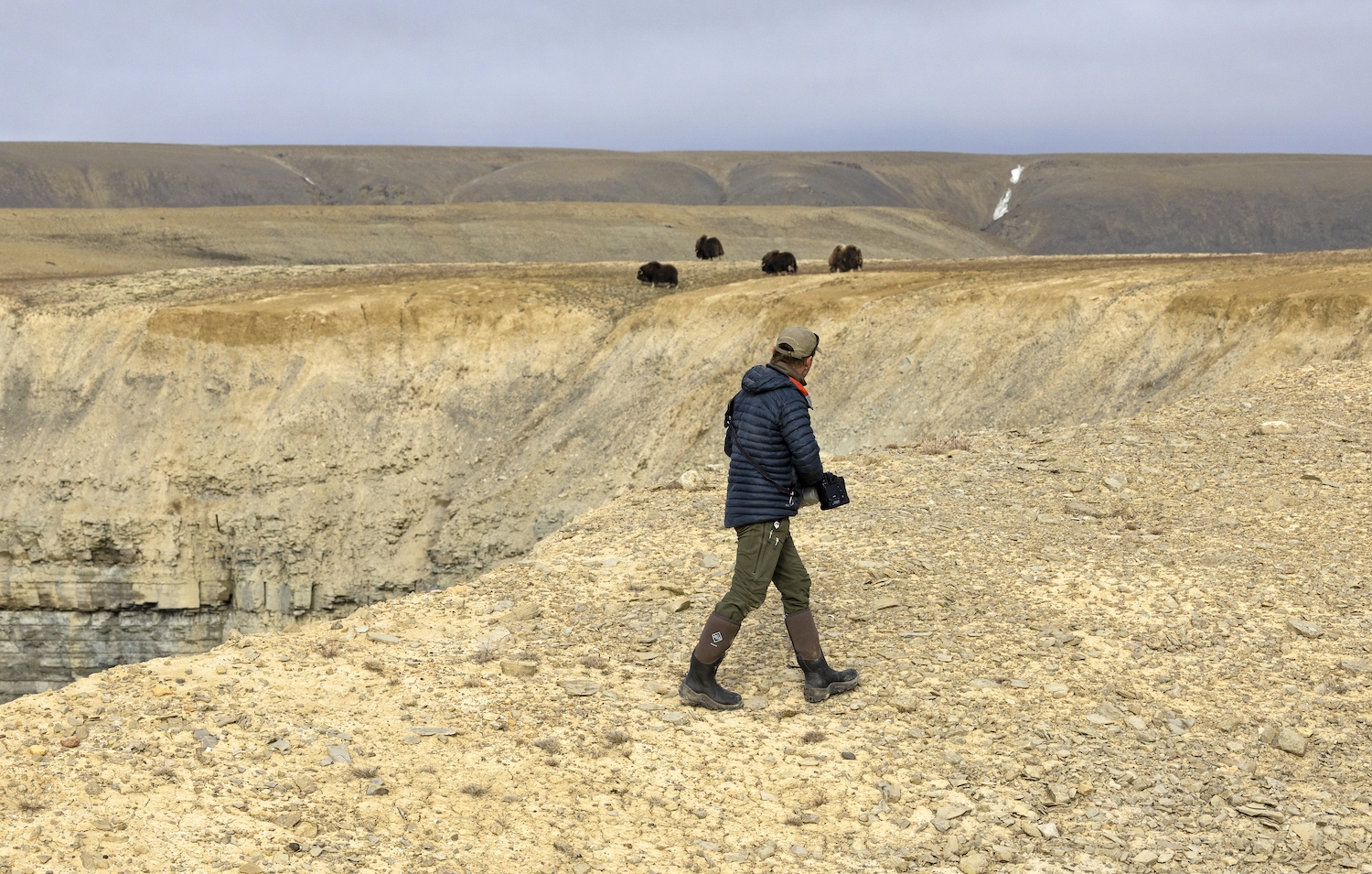
We are honored to support their work through our Arctic Watch Beluga Foundation. Proceeds from visitors to Arctic Watch, private donors, and our company contribute to funding the team's work, which includes providing room and board at Arctic Watch for seven weeks, helicopter flight time to cover larger distances between observation and sampling areas on Somerset Island, dedicated on-island vehicle transportation for the research team, and support from our on-site guiding staff, aircraft cargo space to move equipment and more.
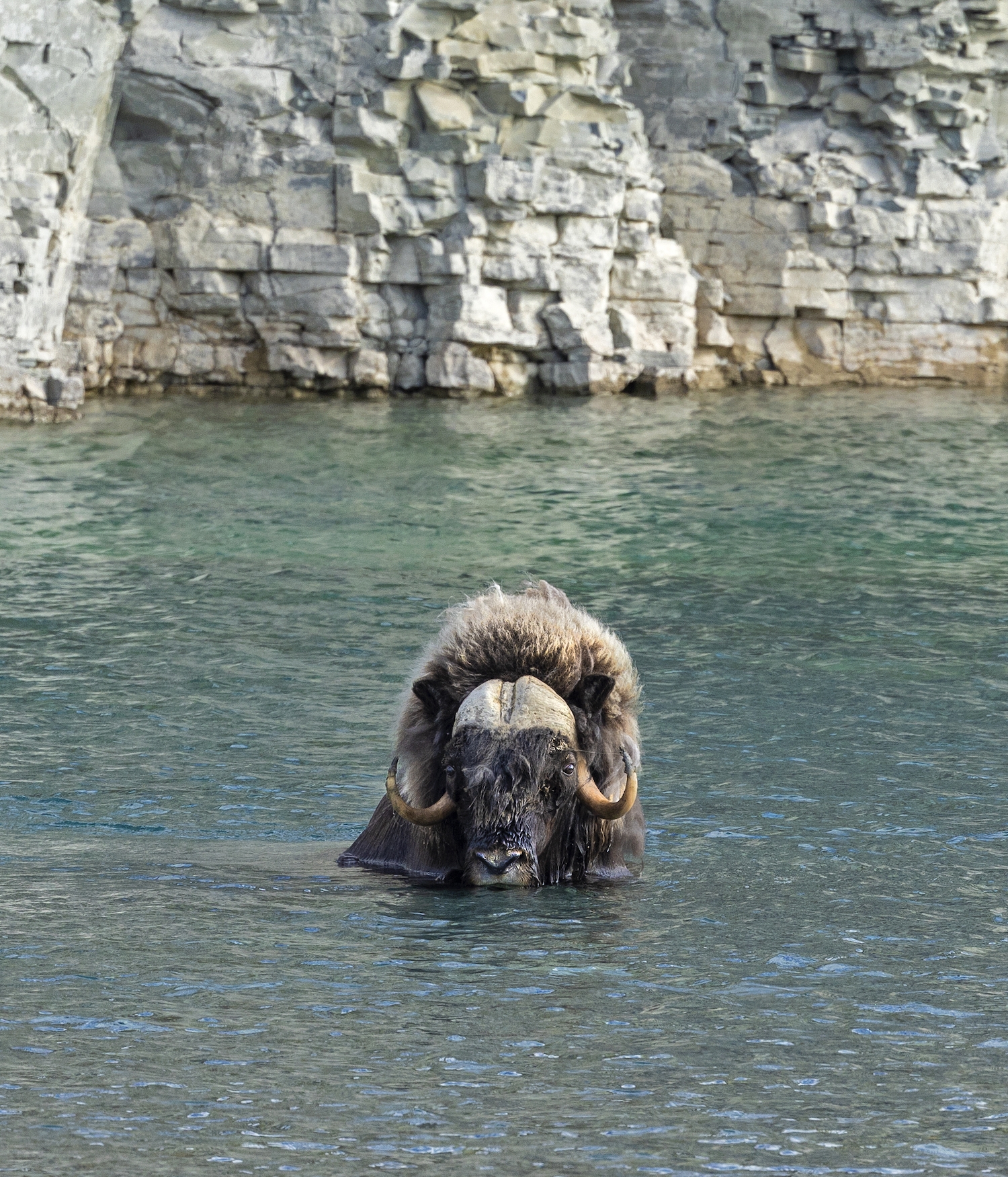
We're here to help.
We understand that booking a trip like this is a big endeavour. Please reach out to us with any questions that you might have regarding your upcoming adventure.



